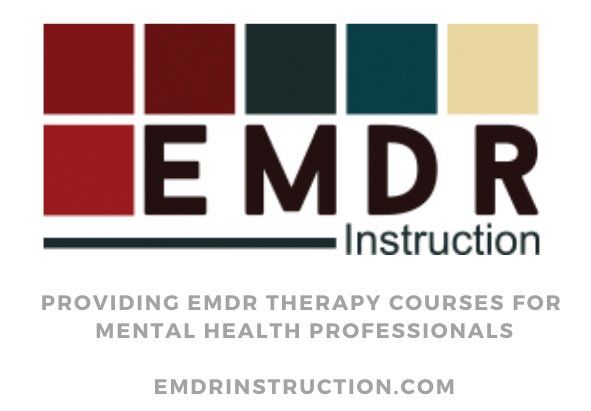6 Important Facts About EMDR Therapy
In the last several years, EMDR therapy gained popularity and recognition for its successes. EMDR is a trauma therapy that involves recalling past traumatic events or memories while actively moving the eyes and tracking stimuli in the present.
The goal is encouraging desensitization and easing the trauma response, which allows patients to process those memories while dealing with the long-term trauma effects. There are many misconceptions about EMDR therapy that can discourage patients from seeking treatment. Here are a few facts you should understand.
1. EMDR Is Research-Based
One of the most common myths about EMDR therapy is that it has no scientific evidence supporting its use. In fact, research and controlled trials prove the efficacy of this approach for trauma response, making it a legitimate and reliable therapeutic method for helping patients with traumatic event processing.
2. EMDR Is Not Hypnosis
Another common source of confusion is the belief that EMDR therapy uses hypnosis. This discourages many people who could otherwise benefit from treatment. EMDR is not hypnosis-based, but attention-based. The goal of EMDR is to maintain active attention on both memory recall and the external, current stimuli.
3. EMDR Takes Time
Some people consider EMDR in the hopes of getting a "quick fix" for their challenges. The fact is that this therapy is not an immediate resolution. The timeline for EMDR success varies with each patient and depends on the severity and complexity of the trauma as well as each patient's specific response. You cannot predict the recovery duration with EMDR therapy. Instead, approach it as a commitment to progress.
4. EMDR Helps With Trauma of All Kinds
Many patients dismiss EMDR therapy by downplaying their trauma. When a patient believes that their trauma does not warrant intervention because it was not severe enough, they sacrifice any potential for recovery and success.
EMDR therapy benefits patients of all kinds, from combat veterans to those who experienced natural disasters, physical or emotional abuse, and even abandonment. No matter the source of the trauma, patients can see improvement in their trauma response with EMDR therapy.
5. EMDR Does not Alter Memories
If you have ever heard that EMDR therapy erases your memories of the trauma or causes memory lapses, you are not alone. The truth is that EMDR does not alter memories in any way. It only alters the way that individuals perceive traumatic memories to reduce the emotional effect and repeated trauma of recall.
Patients undergoing EMDR still remember traumatic events, but those memories lose their power of emotional provocation and upheaval with the therapeutic process.
Another memory-related claim you might hear is that EMDR therapy creates false memories. Some people believe that the therapy uses the power of suggestion and leading to create subconscious false memories in an effort to override traumatic responses.
Patients undergoing EMDR are not influenced in any manner that could lead to false memory development. Instead, patients recall existing traumatic memories to cope with the trauma response and establish new ways to take that emotional power away from those events.
6. EMDR Does Not Require Complete Trauma Disclosure
Sometimes patients fear EMDR therapy because they are uncomfortable providing details of their trauma. For those worried about having to discuss the event in detail, it is helpful to understand that each EMDR patient has control of how much information they actually disclose. Patients can open up as much or as little as they feel comfortable with since much of the process is mental, not verbal.
EMDR therapy has a proven track record of success for patients of all kinds. When you are ready to pursue your career and help others with therapy such as this, contact us at EMDR Instruction today.
Steps to Get Started
01. Check Eligibility
Check to see if you meet the minimum requirements for our EMDR Therapy Training Courses at EMDR Instruction.
02. Register
Reserve your Course Registration for our Upcoming EMDR Training Course at EMDR Instruction by clicking here.
03. Pay
Once you have completed your Course Registrations, you will be redirected to make your Course Payments for Part 1 and Part 2 of the EMDR Training Courses.
Steps to Get Started
01. Check Eligibility
Check to see if you meet the minimum requirements for our EMDR Therapy Training Courses at EMDR Instruction.
02. Register
Reserve your Course Registration for our Upcoming EMDR Training Course at EMDR Instruction by clicking here.
Pay
Once you have completed your Course Registrations, you will be redirected to make your Course Payments for Part 1 and Part 2 of the EMDR Training Courses.
CONTACT INFORMATION
Phone: (318) 834-0969
Email: billwhiteks@gmail.com
Other Email: info@emdrinstruction.com
BUSINESS HOURS
- Mon - Thu
- -
- Fri - Sun
- Closed
Office Hours: Closed Major Holidays
The times above are office hours for clients and are not really relevant to the course dates.
PAYMENT METHODS
Uses CE-Go for payments

Contact Us
We will get back to you as soon as possible.
Please try again later.
CONTACT INFORMATION
Phone: (318) 834-0969
Email: billwhiteks@gmail.com
Other Email: info@emdrinstruction.com
BUSINESS HOURS
- Mon - Thu
- -
- Fri - Sun
- Closed
Office Hours: Closed Major Holidays
The times above are office hours for clients and are not really relevant to the course dates.
PAYMENT METHODS
Uses CE-Go for payments

Contact Us
We will get back to you as soon as possible.
Please try again later.
CONTACT INFORMATION
Phone: (318) 834-0969
Email: billwhiteks@gmail.com
Other Email: info@emdrinstruction.com
BUSINESS HOURS
- Mon - Thu
- -
- Fri - Sun
- Closed
Office Hours: Closed Major Holidays
The times above are office hours for clients and do not pertain to the course dates.
PAYMENT METHODS
Use CE-Go for payments

Contact Us
We will get back to you as soon as possible.
Please try again later.



